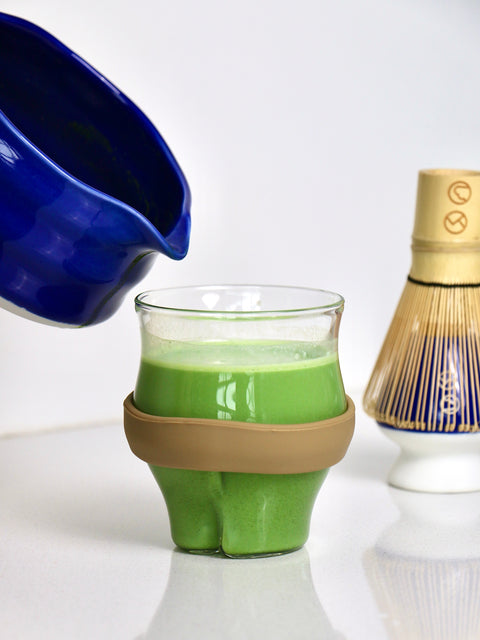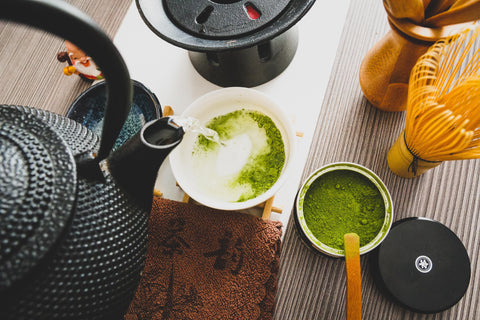
Athletes are constantly seeking natural ways to improve performance, endurance, and recovery. Matcha offers a unique blend of nutrients that make it a valuable ally for active lifestyles.
Sustained Energy Without the Crash
Matcha contains caffeine, but unlike coffee, it releases energy steadily. The amino acid L-theanine slows caffeine absorption, leading to sustained energy and focus without jitters or crashes (Bryan, 2008).
Enhanced Fat Oxidation
Research shows that green tea catechins, especially EGCG, can enhance fat oxidation during exercise. This may improve endurance by helping the body use fat as fuel (Hursel et al., 2009).
Anti-Inflammatory Properties
Exercise often produces inflammation and oxidative stress. Matcha’s antioxidants counteract this, potentially speeding up recovery and reducing muscle soreness (Pan et al., 2003).
Hydration Support
Unlike energy drinks, matcha is hydrating and can be consumed before, during, or after training. Combined with water, it replenishes fluids while delivering nutrients.
Mental Focus in Competition
The caffeine + L-theanine synergy also supports sharper focus and calmness, which can help athletes perform better under pressure (Owen et al., 2008).
Final Thoughts
Matcha is more than just a wellness drink — it’s a natural performance enhancer. With its combination of sustained energy, fat oxidation benefits, and recovery support, matcha is ideal for athletes and anyone with an active lifestyle.
At Forest Cloud, our premium matcha provides clean, natural energy to fuel your workouts and recovery without the additives of synthetic supplements.
Fuel Your Training with Forest Cloud Matcha →
References
-
Bryan, J. (2008). Psychological effects of dietary components of tea: Caffeine and L-theanine. Nutrition Reviews, 66(2), 82–90.
-
Hursel, R., Westerterp-Plantenga, M. S. (2009). Green tea catechin plus caffeine supplementation to increase energy expenditure and fat oxidation. Obesity, 17(7), 1348–1354.
-
Owen, G. N., et al. (2008). The combined effects of L-theanine and caffeine on cognitive performance and mood. Nutritional Neuroscience, 11(4), 193–198.
Pan, M. H., et al. (2003). Molecular mechanisms for anti-inflammatory activity of dietary flavonoids. Journal of Nutritional Biochemistry, 14(3), 123–130.





